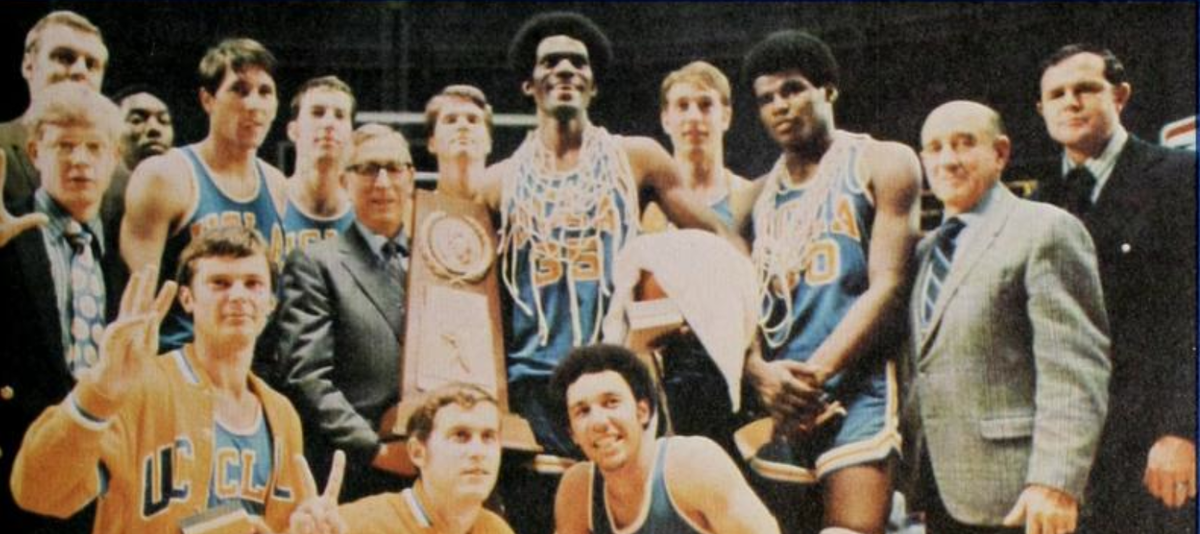

The following blog is taken from Richard E. Simmons III newest book, The Power of a Humble Life. It is available on our website and Amazon.com.
I have learned that humility is not something modern people value or pursue. It is natural to be skeptical when you hear the phrase “The power of a humble life.” Therefore in my new book I share nine examples of great leaders whose success is attributed to the humility that marked their lives. Of these nine, one of my favorites is John Wooden.
ESPN and Sports Illustrated call Coach John Wooden the greatest coach of the 20th century. His stats bear that out. In 40 years of coaching, he compiled an 885-203 record—a winning percentage of .813. His historic tenure as coach of the UCLA Bruins, which spanned 27 years, included four 30-0 seasons, an 88-game winning streak, and ten national championships—seven of those in a row (1966-1973). And he is one of only two people enshrined in the Basketball Hall of Fame as both a player and a coach.
As I have researched the life of John Wooden, every source I read pointed to his humility as the key to his success. Wooden was wary of recognition and fame because he understood that pride was dangerous and could easily ruin a player or a team.
Dr. Ronald Riggio, a psychologist who specializes in leadership, wrote an article in the publication Psychology Today about the leadership of John Wooden. He writes that the first lesson to be learned from the life of Coach Wooden is to be humble. Coaching was not about the coach, for Wooden it was all about the development of student athletes. Riggio had the opportunity to speak with Coach Wooden and was surprised when the coach told him how much he loved Division III college basketball where the players are not on scholarship but play simply for the love of the game. Later Wooden told him, “I think if I had to do it over again, I would have coached Division III.” Riggio was stunned that the greatest coach ever in collegiate sports said he would give away all the glory he received for the “love of the game.”
Pat Williams, who wrote a book on the life of Wooden says that people like Coach Wooden are rare. They are greatly admired and praised by others, but they seem to be unaware of their own greatness. Williams also seemed to think that Coach Wooden had what those level 5 leaders had and what Jim Collins wrote about in Good to Great—a paradoxical blend of personal humility and professional will. In describing Wooden, Williams said he modeled the perfect balance of confidence and humility. In his own words, Coach Wooden said,
Confidence must be monitored so that it does not spoil or rot and turn into arrogance. I have never gone into a game assuming victory. All opponents have been respected, none feared. I taught those under my supervision to do the same. This reflects confidence, not arrogance. Arrogance will bring you down by your own hands.
Pat Williams believes that the outcome of John Wooden’s life can be boiled down to this simple equation: “Confidence plus humility is the simple formula to greatness.” Williams went on to say, “Who is Coach Wooden? He is a guy who never sought out the limelight. He was always trying to stay behind the scenes. He never cared about receiving accolades for his coaching; it was all about the team.”
One of the greatest quotes of John Wooden is very simple but quite profound: “Talent is God-given; be humble. Fame is man-given; be grateful. Conceit is self-given; be careful.”
The Power of a Humble Life and other books by Richard E. Simmons III are available on our website and Amazon.com.
Add grace and understanding to your day with words from Richard E. Simmons III in your inbox. Sign-up for weekly email with the latest blog post, podcast, and quote.

Bulk discounts for 25 or more books! Call 205-789-3471 for prices.
For local orders in the Birmingham, AL area, enter Promo Code LOCAL at checkout to save shipping. We will email you when your order is ready for pickup.